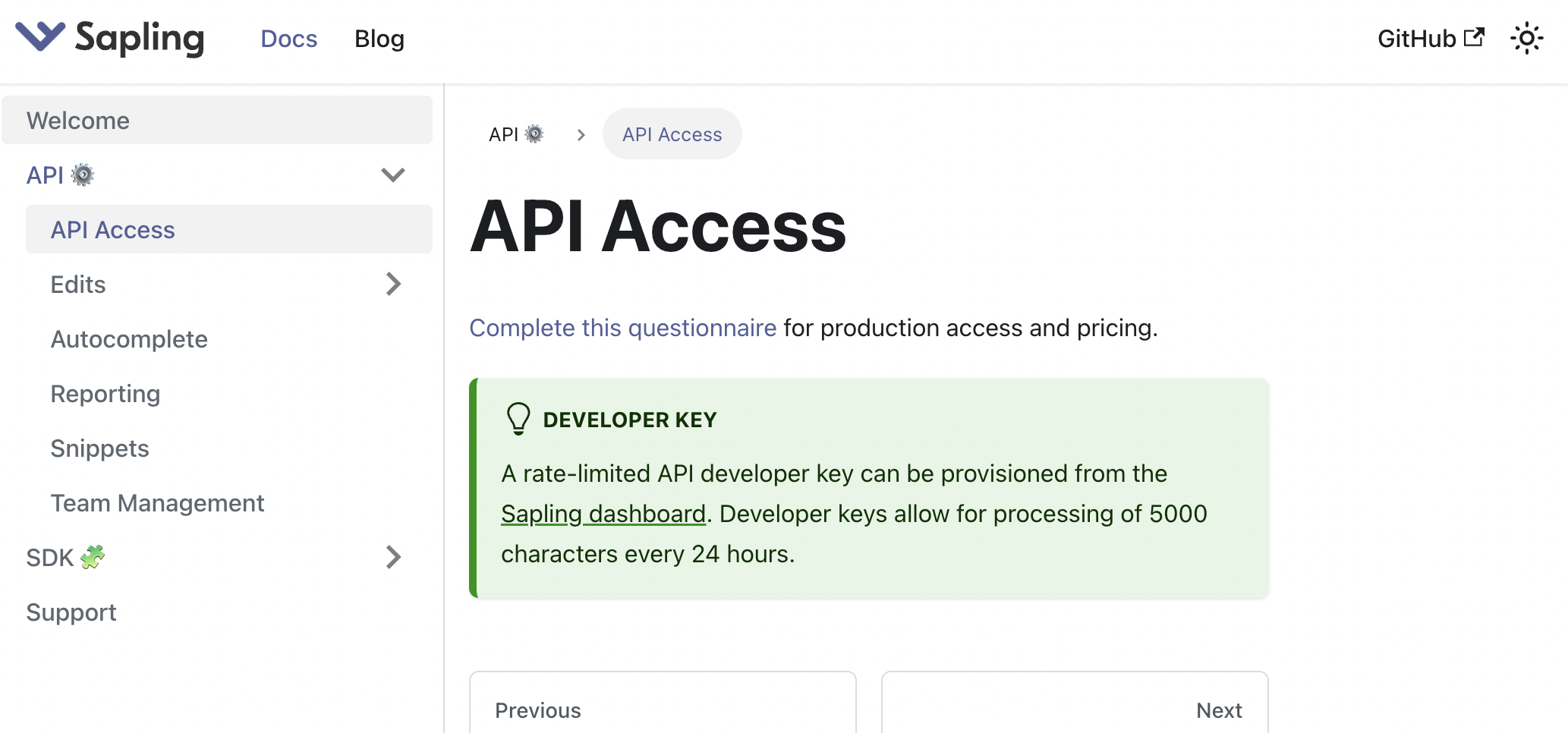Grammar Checking in Python

Python is a high-level interpreted general-purpose scripting language that ranks as one of the most popular programming languages. It is designed to be readable and uses indentation as part of its syntax. The reference implementation, CPython is written in both C and Python, which provides the performance characteristics of C for computationally expensive number-crunching tasks.
Sapling: AI Writing Assistant
With Sapling, you can add grammar or spell checking functionality to an existing Python application.
This page demonstrates a quick way to integrate grammar and spell checking functionality into a Python application using Sapling's API. If you are not looking for a Python guide, click here for guides for other programming languages.
Sapling maintains a Python specific SDK that you can view documentation for here, but you can also access the Sapling Grammar Checking HTTP API using any programming language that supports HTTP POST requests.
Setup Steps
- [Register] for an account.
- Visit the [dashboard] to generate an API key.
- Run the code below, filling in your API key.
Python Grammar Check Quickstart
import requests
key = '<API_KEY>'
url = 'https://api.sapling.ai/api/v1/edits'
data = {
'key': key,
'text': 'Lets get started',
'session_id': 'Test Document UUID',
}
try:
resp = requests.post(url, json=data)
resp_json = resp.json()
if 200 <= resp.status_code < 300:
edits = resp_json['edits']
print('Edits: ', edits)
else:
print('Error: ', resp_json)
except Exception as e:
print('Error: ', e)
Returned result:
{
"edits":[
{
"end":4,
"error_type":"R:OTHER",
"general_error_type":"Other",
"id":"aa5ee291-a073-5146-8ebc-c9c899d01278",
"replacement":"Let's",
"sentence":"Lets get started!",
"sentence_start":0,
"start":0
}
]
}Documentation
Addtional parameters and Sapling's full API documentation can be accessed here: https://sapling.ai/docs
